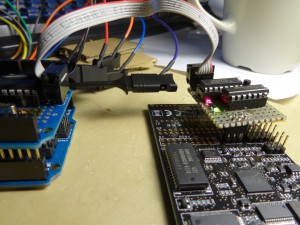Posted inanalog2.0 tech notes
Noise Source Transistor — Conclusion
I have been working for a while to determine which transistor to use for noise source in noise generator. I was using 2SC3311 which was obsoleted recently. I did several tests, mainly by listening, and chose BC547. The reasons are: It has good taste as a noise source. Easy to find sweet spots when using it with a filter and VCA. Noise level was close to 2SC3311, so my previous design works with simple replacement. Availability is good. Unlikely to get obsoleted soon. I started the test with listening "raw" noise without any modification and filtering. However, it didn't work well. Many of the candidates sounds similarly. However, I found…

